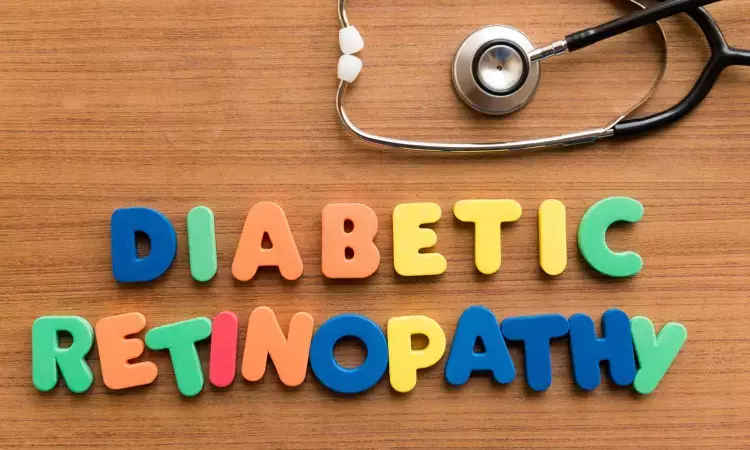- Home
- Medical news & Guidelines
- Anesthesiology
- Cardiology and CTVS
- Critical Care
- Dentistry
- Dermatology
- Diabetes and Endocrinology
- ENT
- Gastroenterology
- Medicine
- Nephrology
- Neurology
- Obstretics-Gynaecology
- Oncology
- Ophthalmology
- Orthopaedics
- Pediatrics-Neonatology
- Psychiatry
- Pulmonology
- Radiology
- Surgery
- Urology
- Laboratory Medicine
- Diet
- Nursing
- Paramedical
- Physiotherapy
- Health news
- Fact Check
- Bone Health Fact Check
- Brain Health Fact Check
- Cancer Related Fact Check
- Child Care Fact Check
- Dental and oral health fact check
- Diabetes and metabolic health fact check
- Diet and Nutrition Fact Check
- Eye and ENT Care Fact Check
- Fitness fact check
- Gut health fact check
- Heart health fact check
- Kidney health fact check
- Medical education fact check
- Men's health fact check
- Respiratory fact check
- Skin and hair care fact check
- Vaccine and Immunization fact check
- Women's health fact check
- AYUSH
- State News
- Andaman and Nicobar Islands
- Andhra Pradesh
- Arunachal Pradesh
- Assam
- Bihar
- Chandigarh
- Chattisgarh
- Dadra and Nagar Haveli
- Daman and Diu
- Delhi
- Goa
- Gujarat
- Haryana
- Himachal Pradesh
- Jammu & Kashmir
- Jharkhand
- Karnataka
- Kerala
- Ladakh
- Lakshadweep
- Madhya Pradesh
- Maharashtra
- Manipur
- Meghalaya
- Mizoram
- Nagaland
- Odisha
- Puducherry
- Punjab
- Rajasthan
- Sikkim
- Tamil Nadu
- Telangana
- Tripura
- Uttar Pradesh
- Uttrakhand
- West Bengal
- Medical Education
- Industry
CPAP Treatment controls blood sugar and halts retinal disease in diabetes patients with sleep apnea

A recent study suggests that long-term continuous positive airway pressure (CPAP) treatment can slow the progression of eye disease in individuals with non-proliferative diabetic retinopathy who also have sleep apnea. However, it's important to note that patients who adhered to the CPAP intervention ended up with more retinal microhemorrhages. This study was published in Annals Of The American Thoracic Society by Francisco García-Rio, MD, PhD, of the Hospital Universitario La Paz in Madrid, and colleagues.
The study was a single-center trial conducted in Spain, known as the RetinAS trial, from 2016 to 2020. It enrolled 83 patients with mild-to-moderate non-proliferative diabetic retinopathy and sleep apnea. The trial's primary objectives were to evaluate changes from baseline in the percentage of eyes with retinal exudates and the number of retinal microhemorrhages after 52 weeks of treatment.
- CPAP treatment, when added to standard care, significantly reduced the percentage of eyes with hard exudates from 49.1% to 29.8% over 52 weeks. In contrast, the usual-care group saw no change.
- A per-protocol analysis showed that adequate adherence to CPAP (at least 4 hours per night) was associated with a surprising increase in retinal microhemorrhages.
- The increase in microhemorrhages appeared to be related to the level of CPAP pressure used.
- No significant reduction was observed with CPAP for the percentage of eyes with soft exudates, with neither the CPAP nor control group showing significant changes.
- CPAP treatment was linked to improvements in sleepiness, sleep-related quality of life, glycemic control, and decreased retinal thickness. However, these improvements did not lead to changes in visual acuity or intraocular pressure.
- Serious adverse event rates were similar between the CPAP and control groups, with no significant differences.
The study offers new hope for managing diabetic retinopathy in individuals with sleep apnea. CPAP treatment alongside standard care demonstrated a significant reduction in hard exudates, a key feature of diabetic retinopathy. However, the unexpected increase in retinal microhemorrhages among patients adhering to CPAP underscores the need for careful pressure management during therapy.
These findings suggest that in addition to controlling hypertension and blood glucose, referral to sleep specialists for CPAP treatment may be a beneficial approach for managing diabetic retinopathy in patients with sleep apnea. This intervention could potentially reduce oxidative stress and improve retinopathy.
These findings open new avenues for managing diabetic retinopathy in individuals with sleep apnea, but they also underscore the importance of carefully monitoring and optimizing CPAP settings to avoid potential complications.
Reference:
García-Sánchez A, et al "CPAP effect on progression of retinal disease in patients with sleep apnea and non-proliferative diabetic retinopathy: a randomized clinical trial" Ann Am Thorac Soc 2023. https://www.atsjournals.org/doi/abs/10.1513/AnnalsATS.202304-296OC
Dr Riya Dave has completed dentistry from Gujarat University in 2022. She is a dentist and accomplished medical and scientific writer known for her commitment to bridging the gap between clinical expertise and accessible healthcare information. She has been actively involved in writing blogs related to health and wellness.
Dr Kamal Kant Kohli-MBBS, DTCD- a chest specialist with more than 30 years of practice and a flair for writing clinical articles, Dr Kamal Kant Kohli joined Medical Dialogues as a Chief Editor of Medical News. Besides writing articles, as an editor, he proofreads and verifies all the medical content published on Medical Dialogues including those coming from journals, studies,medical conferences,guidelines etc. Email: drkohli@medicaldialogues.in. Contact no. 011-43720751


